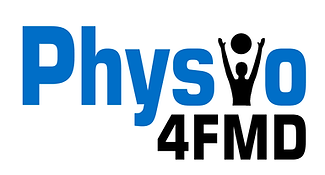
A randomised controlled trial of
physiotherapy for functional motor disorder
Frequently Asked Questions
The Physio4FMD trial has now finished recruitment. The final trial outcome will be collected by March 2023 and the trial results will be published by September 2023. We will update this website with results and links to trial publications.
I have FMD, can I volunteer to take part in this trial?
Unfortunately, we are unable to sign up volunteers who contact the trial team.
Why can't I just volunteer to be a participant in this trial?
To enter the trial, you must be seen by one of the trial-neurologists at a participating centre first. This is to make sure the diagnosis of FMD is correct and that you meet the trial eligibility criteria.
How can I get to see a trial neurologist?
You will need to be referred by your GP or a specialist doctor to a neurologist at one of the participating centres (as this trial relies on NHS funding and NHS services, we need to follow NHS rules). If you do not live close to a participating centre, the travel to and from appointments may make participating in the trial inconvenient.
Why does the study not include everybody with FMD?
Some people with FMD have other problems or symptoms that can make participating in physiotherapy more difficult or physiotherapy might flare up their symptoms. These people require a more flexible approach to treatment than what the trial is able to provide.
What types or problems make this trial unsuitable for someone?
If you have a problem that prevents you from being able to attend regular physiotherapy sessions and participate in exercise, you are unlikely to benefit from the type of physiotherapy being tested in this trial.
Some of the most common reasons why the trial treatment is unsuitable for people are:
-
The person has another diagnosis or health problem (other than FMD) that explains most of their difficulty with movement. For example, very high levels of pain or fatigue.
-
The person has dissociative seizures or blackouts that would interfere with their ability to take part in the physiotherapy treatment and exercise.
-
The person has severe psychiatric health problems that would interfere with their ability to take part in the physiotherapy treatment and exercise.
-
The person does not speak English or has a learning difficulty that would prevent them reading and answering the study questionnaires.
These things do not necessarily mean that physiotherapy is unable to help the person, only that the trial is not suitable for them.